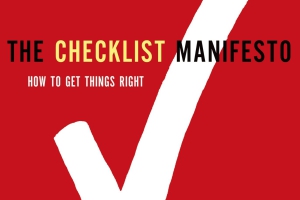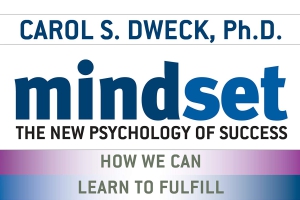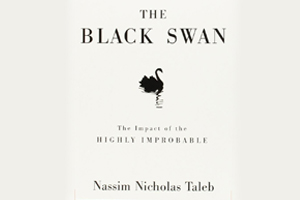Author: Scott Pape
The Barefoot Investor is a guidebook for you if you are keen on eliminating debt and accumulating wealth. As a step-by-step guide to personal investing best practices, the treatise depicts the long-term benefits that can be accrued by starting your investment journey right away. The author, Scott Pape, has also been known as the Barefoot Investor, due to his own voyage towards financial wellness. When Pape lost all of his belongings, from his family home and farm to their livestock, in a bushfire, Pape chose to look beyond the rubble and recreate his life. He is known for having had the confidence to look himself in the mirror and say ‘I’ve got this’, despite the terrible circumstances and The Barefoot Investor is a compilation of all his learnings.
Author Scott Pape resides in Australia and has spent much of his life empowering his country folk to better manage their finances. Even as he shares his knowledge through multiple platforms, his treatise is a bestselling book that has helped investors become wealthy through pragmatic and engaging guidelines. Pape strongly believes that you should be able to enjoy financial freedom and the lessons shared in his book are geared towards making this dream come true by enabling you to become savvier with your money. It offers you tips on how to handle the different stages of your financial life, with a focus on aspects such as planting, growing, and harvesting wealth. It is highly personal and impactful and has enhanced the financial wellbeing of hordes of global readers and investors.
Key Takeaways
- Stay ahead of your finances by planning a financial date night every month.
- Ensure efficient planning by dividing your income into blow (daily expenses), mojo (savings), and grow (investments) buckets.
- Consider opening different bank accounts for different purposes to avoid confusion and boost efficiency.
- Avoid purchasing unnecessary items as it adds to the clutter while also wasting your hard-earned money.
- Be open to asking questions that may seem dumb, when you have doubts, as this is better than remaining in the dark.
- Make sure to get rid of your debt as soon as possible – if possible, destroy your credit cards to avoid falling into the debt trap.
- Work towards supplementing your income through freelance work or a side business, as this will help you achieve your financial wellness goals faster.
- Consider investing in index funds to automate your retirement plans efficiently.
With highly practical and pragmatic lessons, The Barefoot Investor can help you build your wealth and ensure absolute financial freedom for yourself and your family. And since these lessons come from Pape’s own life lessons, they hold that much more gravitas and are greatly realistic. It makes you believe that if the author can overcome his misfortune after losing everything that he and his family owned, then you can surely take a few practical steps towards financial independence.
Focus on financial planning
It is imperative to conduct monthly date nights with your financial matters if you wish to enjoy financial freedom. While some of you may find it incredibly boring or tiresome to plan your finances on a monthly basis, it is a sure shot way to ensure that you stay ahead of the money game. And, once you start making time for this monthly exercise and seeing the consequent results, you will find yourself enjoying the process even more. When you save one night a month to go through this exercise, you will be prepared for the time and effort required and will find it harder to procrastinate. A great way to make the best of the occasion is to splurge on a good dinner and an evening out, after you finish the planning.
Organise your money optimally
In terms of financial organisation, you can consider using multiple bank accounts for different financial objectives. For instance, it is advisable to have five accounts, for different purposes such as daily expenses, small treats, saving for larger indulgences, paying off your debt, and creating your retirement fund. This will help you stick to your budget and maintain financial discipline but, remember to choose accounts with the minimum fees and the best rates of interest. Divide your income, with around 60% going into monthly expenses, 10% each into small and large indulgences, and allocate 20% towards sorting out your debt. After your debt is nullified, this 20% should head towards your retirement fund. Remember to get rid of unnecessary credit cards to curtail your debt effectively.
Work on growing your wealth
Once financial management and planning is out of your way, you can start focusing on growing your wealth by increasing your sources of income. As is frequently said in the finance world, there is a limit to how much you can actually save but, if you use the right tactics, there is no limit to how much you can bring in as income. When you start earning more, through a side business or freelancing model, you can save that much more and divert a greater amount towards your retirement fund. To boost your income, learn valuable skills and focus on enhancing your employability. Separately, consider investing in a home to enjoy tax benefits and create a robust asset. You can also save on your monthly rent this way. Finally, save up enough in your mojo bucket to ensure a financially free life, in the face of volatile job markets.
Choose your insurance and expenses wisely
While there is no questioning the importance of insurance in a world filled with surprises, choose your insurance policies wisely. Ensure that you only purchase policies for things that can have a major impact on your financial wellbeing. For instance, if you do not have any dependents who need you to take care of them financially, you can avoid paying the premium on hefty life insurance policies. Look for comprehensive plans which offer 360-degree coverage to avoid shelling out unnecessarily large amounts on premiums. Separately, many of us have the habit of binge shopping and we end up purchasing items we may not really need. Avoid clutter at all costs and only purchase the things you actually need and will use. A great way to avoid impulse buys is to wait a month before committing to the purchase. This grace period allows you to understand whether the item fits under the category of a need or a want.
Build a retirement portfolio with index funds
As an individual, you may have heard about the power of investing when it comes to attaining financial freedom. If you are a novice investor, index funds, which are passive schemes investing across equity, fixed income and commodities, can help you optimise your investments in a cost-effective and low-risk manner. Through such funds, you can own a share in successful businesses and participate in the growth of the economy, without worrying about active trading or tracking the market. Historically, index investments have proven extremely successful due to their low cost nature and their focus on tracking the underlying market and these schemes can be excellent additions to your retirement portfolio.
Practice fiscal prudence and create a blueprint
It is advisable to create a blueprint for your retirement fund, with a focus on how much money you would actually need for a stable golden period. Once you have an estimate at hand, after considering rising inflation, medical costs, and other expenses you can work towards attaining the desired figure through fiscal prudence and effective investment tactics. If you have a pension available, or a provident fund, consider that as well while accounting for your retirement. When you have a figure handy, you know exactly how much to save, and this helps avoid both over- and under-saving. While you would not want to struggle post retirement, you should not save all your money for retirement and forego on the present either. Practicing fiscal prudence also involves teaching your children, if any, to understand the value of money. Choose to teach them financial wellness through budgets and pocket money, rather than spoiling them by purchasing everything they demand. They will surely thank you later for imbibing in them the importance of financial planning.
Money is, undoubtedly, a very important part of our lives and it is imperative that we manage it wisely if we wish to lead a financially secure life. As you imbibe these lessons and start your journey towards financial wellness, remember that it is better to ask dumb questions than to make stupid mistakes. If you do not understand technical details or have doubts regarding financial matters, consult a financial advisor and seek their guidance before taking the plunge. This will help you avoid a tremendous amount of heartache and financial failure. Also, be wary of schemes that sound too good to be true and only invest in proven strategies or assets to avoid losing your hard-earned money. Ensure that you always remain in control of your finances as this will help you avoid the chances of painful financial surprises.
You could be someone who is embarking on their financial planning journey, i.e., a novice, or you could be a person who is well into their financial planning journey and wants to optimise your financial portfolio. Either way, you know the importance of financial planning. However, one of the biggest roadblocks to optimal financial planning is deciding where to invest. This challenge can be mitigated through mutual funds. These are pooled investment vehicles that enable you to invest in a wide variety of asset classes including debt, equity, and a mix of debt + equity. In this way, mutual funds give you both choice as well as flexibility. For example, if you are a novice investor then you can choose to invest in equity index funds that let you take exposure to equity investments while mitigating equity risk. On the other hand, if you are a seasoned investor, you can invest in equity funds or even hybrid funds that offer you the benefit of both equity and debt investments. Successful financial planning requires a saathi, and mutual funds could be that saathi for you.
An investor education initiative by Edelweiss Mutual Fund.
All Mutual Fund Investors have to go through a onetime KYC process. Investor should deal only with Registered Mutual Fund (RMF). For more info on KYC, RMF and procedure to lodge/redress any complaints – please visit on https://www.edelweissmf.com/kyc-norms
MUTUAL FUND INVESTMENTS ARE SUBJECT TO MARKET
RISKS, READ ALL SCHEME RELATED DOCUMENTS CAREFULLY.
Trending Books
MUTUAL FUND INVESTMENTS ARE SUBJECT TO MARKET RISKS, READ ALL SCHEME RELATED DOCUMENTS CAREFULLY.













